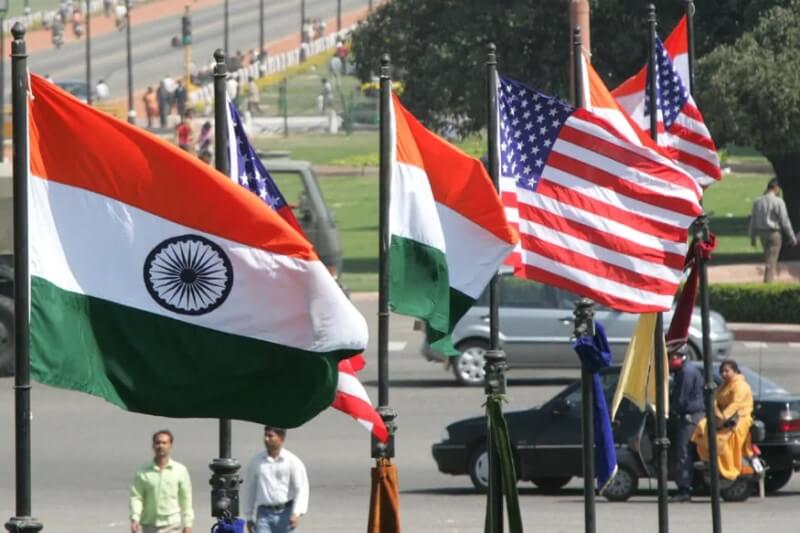Enamul Hafiz Latifee compiles,
The US Commission on International Religious Freedom (USCIRF) has designated India as a country of “Particular Concern” (CPC) in its annual report of 2020, saying the country was “engaging in and tolerating systematic, ongoing and egregious religious freedom violations”.
In scathing remarks, it added that the “national government allowed violence against minorities” and also “engaged in and tolerated hate speech and incitement to violence”.
Rejecting the observations made in the report, the Indian government’s official spokesperson Anurag Srivastava said, “Its (the USCIRF’s) biased and tendentious comments against India are not new. But on this occasion, its misrepresentation has reached new levels. It has not been able to carry its own Commissioners in its endeavour. We regard it as an organisation of particular concern and will treat it accordingly.”
The USCIRF is an independent, bipartisan US federal government commission. It makes policy recommendations based on its review of global religious freedom to the US President, the Secretary of State and the US Congress.
The list includes 14 nations that have been flagged as “countries of particular concern”. These include nine countries that the State Department designated as CPCs last December — Myanmar, China, Eritrea, Iran, North Korea, Pakistan, Saudi Arabia, Tajikistan and Turkmenistan — as well as five others — India, Nigeria, Russia, Syria, and Vietnam.
The annual report makes a mention of the Citizenship Amendment Act (CAA) and Assam’s National Register of Citizens (NRC). It adds that the “BJP leaders have continued to advocate for nation-wide NRC” and coupled with the CAA “Muslims alone would bear the indignities and consequences of potential statelessness”.
The USCIRF has recommended that the US government impose targeted sanctions on “Indian government agencies and officials responsible for severe violations of religious freedom by freezing those individuals’ assets and/or barring their entry into the United States”.
While discussing India, USCIRF Chair Tony Perkins said, “We are seeing impunity for violence by non-state actors committed against religious minorities.”
Expressing deep disappointment, Vice-Chair Nadine Maenza said “perhaps the steepest and most alarming deterioration in religious freedom conditions was in India, the largest democracy in the world”.
This is the first time in more than 15 years that India has been designated a “country of particular concern”. In fact, the 2006 Annual Report had appreciated the “positive developments” in affecting freedom of religion. The 2013 report had said “there has been no large-scale communal violence against religious minorities in India since 2008”, but had pointed out that in some cases, redressal had been slow and ineffective.
The annual reports for the last two years have been warning India of a “continued downward trend” with regards to religious tolerance and religious freedom violations.
Dissent among commission members
However, two of the nine members have expressed their dissent over the USCIRF recommendation to place India in the CPC. And a third member also expressed his personal view on India.
“I must dissent from the decision of my fellow Commissioners to recommend India, the world’s largest democracy, for designation as a ‘country of particular concern’, or CPC, placing India in a gallery of rogue nations in which it does not belong,” Commissioner Gary L Bauer wrote in his dissent note.
“India does not belong to the same category as authoritarian regimes like China and North Korea. India is the largest democratic nation in the world, where the CAA has been challenged openly by the opposition Congress Party and lawmakers, civil society, and various groups,” said Commissioner Tenzin Dorjee.
Established by the US government in 1998 after the inaction of the International Religious Freedom Act, recommendations of the USCIRF are non-binding to the State Department. Traditionally, India does not recognise the USCIRF’s view. For more than a decade, it has denied visas to members of the USCIRF.
India has earlier said the American body on international religious freedom has chosen to be guided only by its biases on a matter on which it has no locus standi.
Designation of the CPC is the top-tier recommendation by the USCIRF when it comes to violation of international religious freedom. It is followed by the Special Watch List Countries for severe violations. This year, the USCIRF has recommended 15 countries for placement on the State Department’s Special Watch List (SWL) for severe violations.
In its report, the watchdog also mentioned the communal riots in Delhi in February, alleging there were reports of the Delhi Police, operating under the Home Ministry’s authority, of failing to halt attacks and even directly participating in the violence.
India has previously described the comments by the USCIRF and a “few individuals” over violence in the national capital as “factually inaccurate, misleading” and an attempt to politicise the issue.
In his individual views, Commissioner Johnnie Moore said he is gravely concerned that political and inter-communal strife will be further exacerbated by religious tensions, yet he is also heartened that India remains the world’s largest democracy, governed by a pristine constitution, and is also encouraged that this great nation is a tremendous friend and ally of the US.
(With inputs from PTI and News18)
